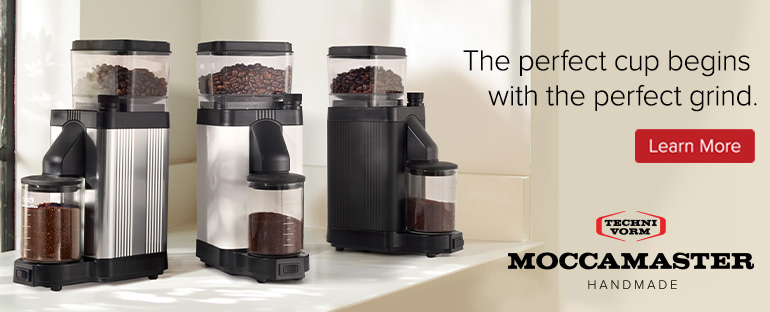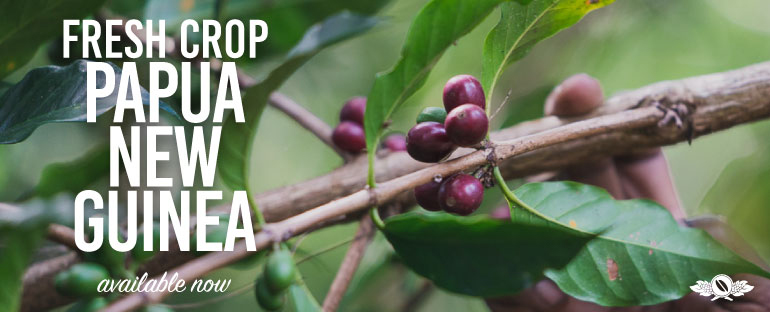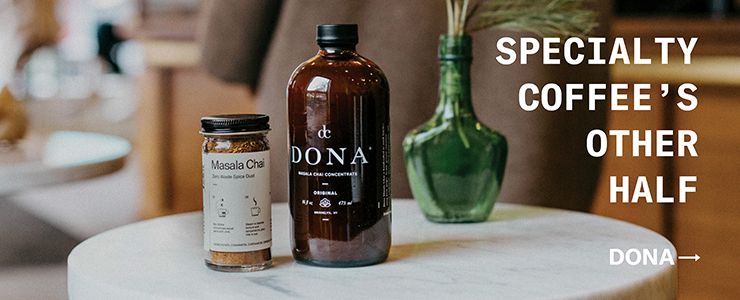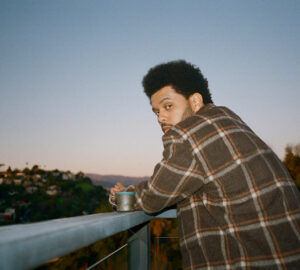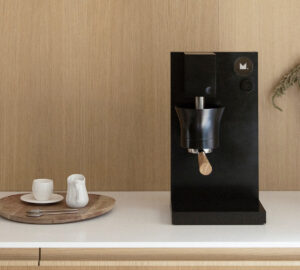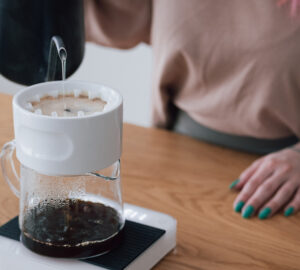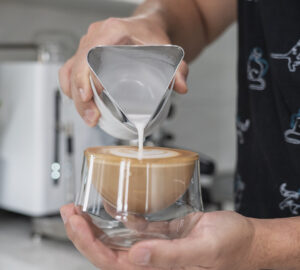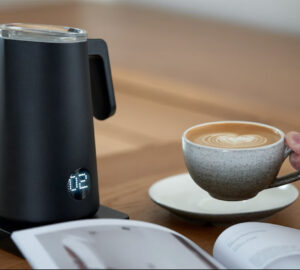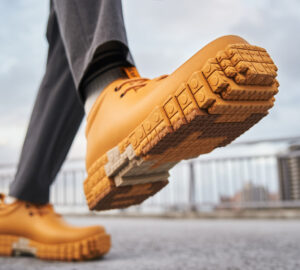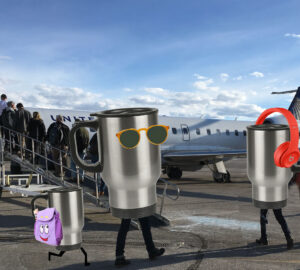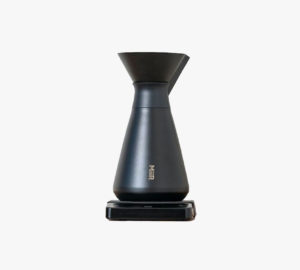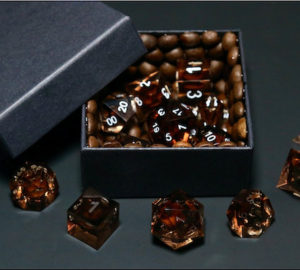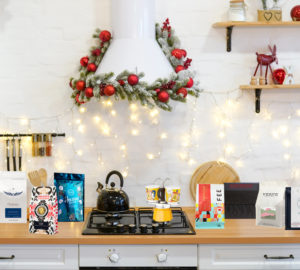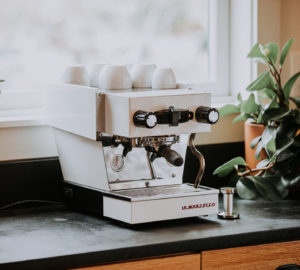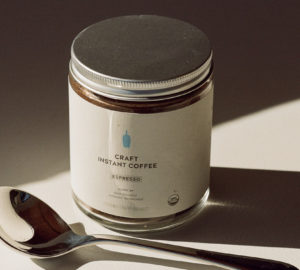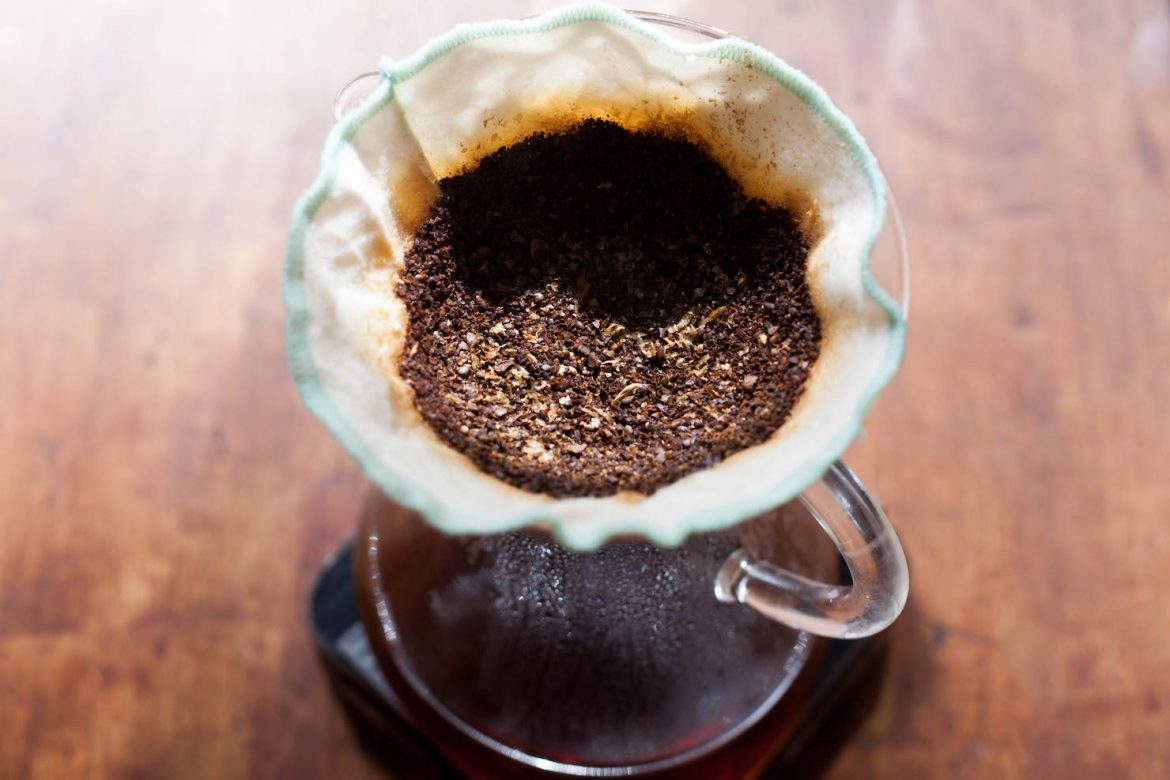
For those who think about the sustainability of what’s in their cup, the next step is the sustainability of the brew method. That’s where the Ebb filter comes in, a new reusable coffee filter made from U.S.-grown organic cotton.
Geana Sieburger didn’t set out to get into the coffee industry, but as a product designer interested in sustainable textiles, that’s where her path eventually led. Around 2014, Sieburger launched her Oakland-based business GDS Cloth Goods, a workshop and studio focused on sustainable production, and often, with a connection to food (the company’s first product was aprons). For the last year, she has been working to develop a pour-over filter that’s not only developed to brew excellent coffee, but that’s also ethically produced.
While Sieburger enjoys coffee, her main driving interest is in textiles. The idea for GDS Cloth Goods came after working almost a decade as a textile buyer at Britex Fabrics, “getting a realistic picture of what the industry looks like in this country.” As she worked and her interest in sustainability increased, her research led her to organizations like Fibershed and the realization that when it comes to fashion, “what a huge difference fiber choice can make.”
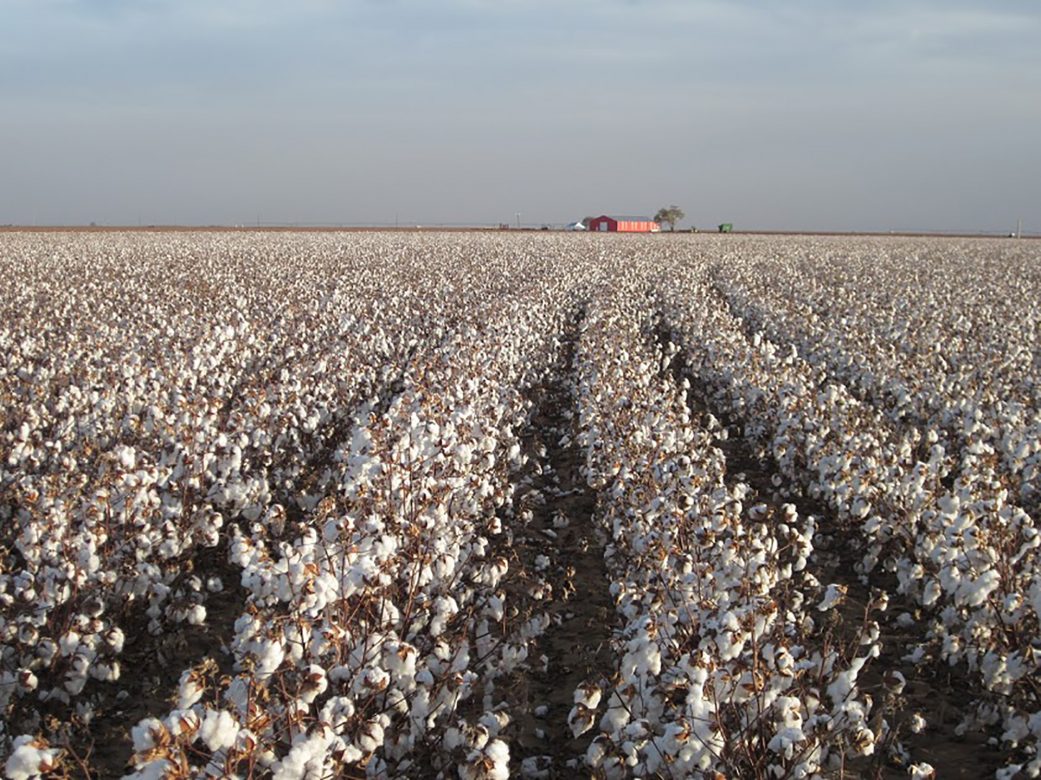
But while textiles are often equated with fashion, Sieburger is quick to point out that they extend far beyond that. “I’ve never seen myself as a fashion designer,” says Sieburger. “I see myself as a product designer using textiles… All of the things I make come from a very real place and a very real need in my own life.”
Interested in producing a reusable coffee filter, she came across an organic cotton that worked well for the first rendition of the filter. But she wanted to go further, and partnered with Benjamin C. Brewer, Director of Quality Control at Blue Bottle Coffee. “My standard was always ‘does it work for specialty coffee?’” says Sieburger. They found their way to the Texas Organic Cotton Marketing Cooperative which pointed them in the direction of a mill in South Carolina. Together with a textile developer, they worked their way through many iterations. The new version, which launched a fundraising campaign on Kickstarter in February, is the result of “almost a year of me going back and forth between the mill and baristas,” says Sieburger. The Kickstarter campaign—now fully funded, ending March 30th—will allow the company to add another filter size to the lineup.
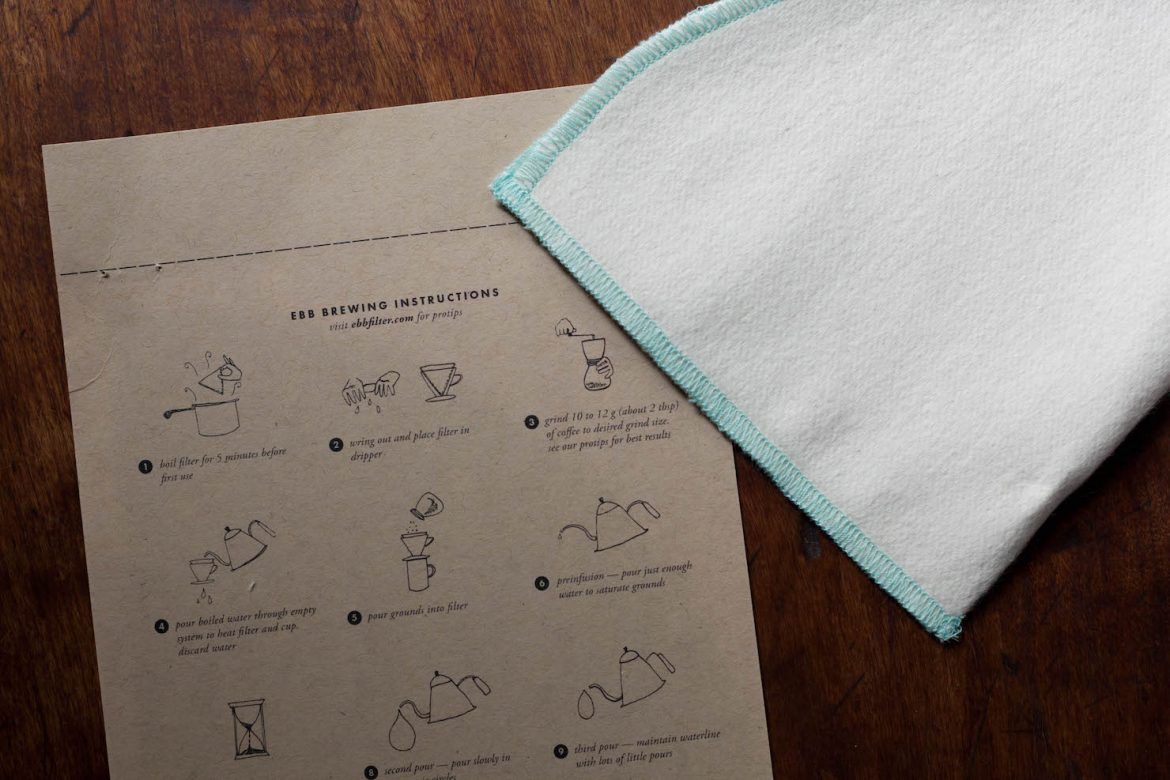
Sourcing fiber from the Texas Cotton Marketing Cooperative allows Sieburger to not only ensure the agricultural sustainability of the product, but also the social sustainability. “Even though there is definitely exploitation of labor happening in this country, it’s less likely with all the regulations in place,” says Sieburger. Pointing out that for her this is “the number one reason” for choosing to source fiber in the U.S. The result is a product where ethics and quality go hand in hand.
“Ebb filters are quite possibly the most luxurious filter medium for brewing. The cloth transforms and transmits silken layers and autumnal textures to the cup,” says Brewer. “These filters have the potential to truly elevate a coffee. It is obvious that a great deal of thought and care have gone into this product.”
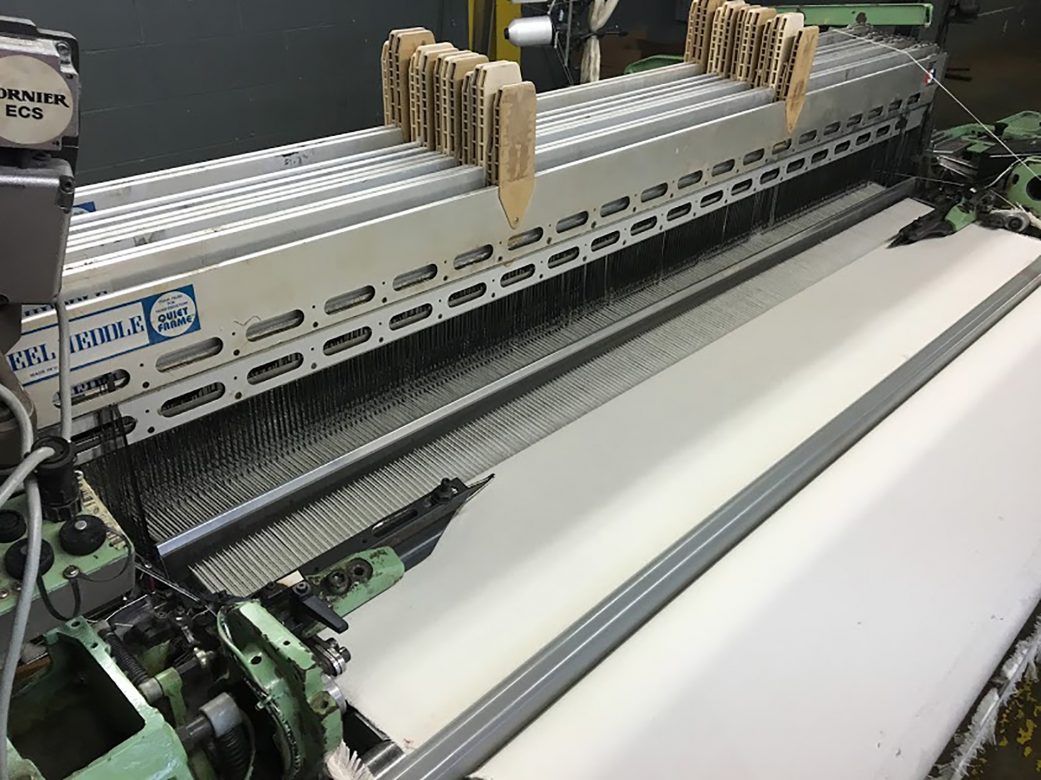
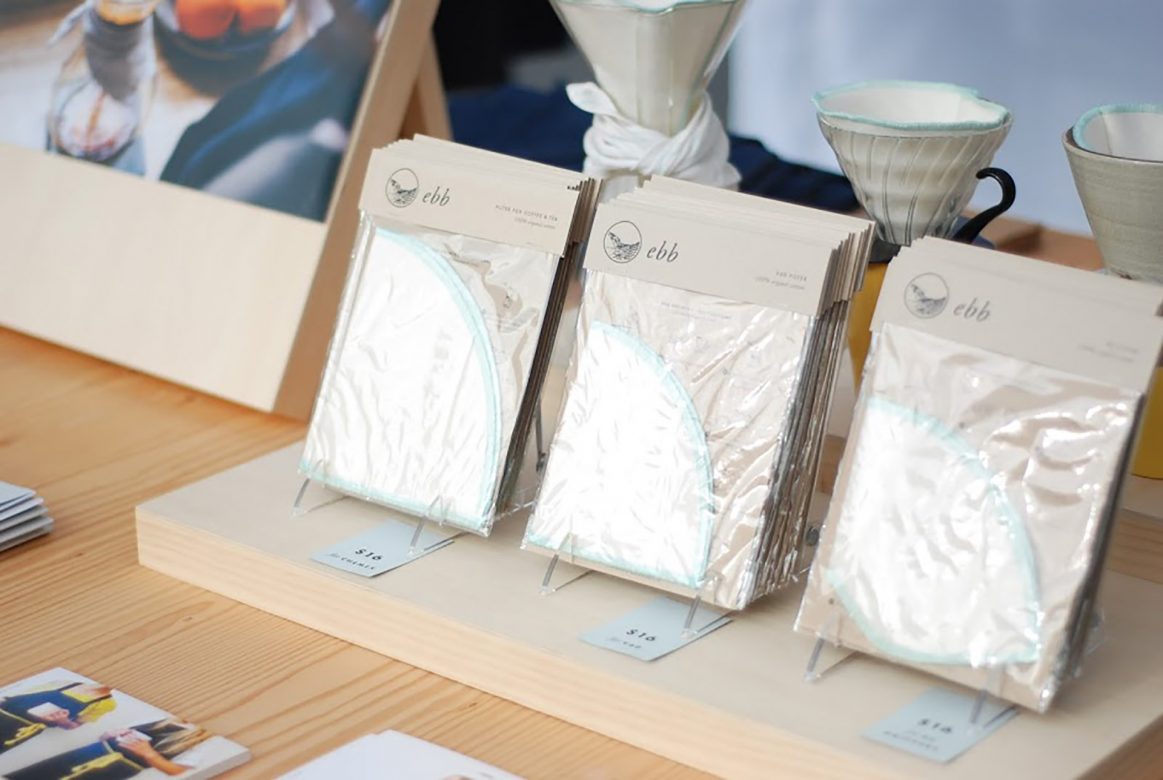
Born in Brazil, Sieburger notes that her path to coffee comes with personal meaning. “[It] has allowed me to connect with my grandmother in a way that I hadn’t expected,” Sieburger says, noting that during the development process of the Ebb Filter, “my mother said to me, ‘that’s how your grandmother used to make coffee, with a cotton filter.’”
According to James Freeman, Founder and CEO of Blue Bottle Coffee, her grandmother was on to something. “There is something wonderfully ineffable about coffee filtered with a flannel cloth. The technique is quite different than filtering through paper, and, in my opinion, a little trickier, but the result, especially in the texture of the finished product, has a luminosity which shines brighter and deeper than a well made paper-filtered coffee,” says Freeman.
The Ebb filter isn’t the first reusable filter to hit the market. Sieburger points out two products she respects, Coffee Sock and the Kone Coffee Filter by Able Brewing. For Sieburger, she sees her work as not just offering the consumer a reusable product, but also highlighting the crossover between coffee and textiles. While they experience different difficulties, “coffee is an industry in crisis just like fashion and textiles,” says Sieburger.
She hopes that the new filter can be not just a tool to making great coffee, but also a conversation starter. “These things that we wear and use and consume and eat, they come from people and they come from the land,” says Sieburger. “Creating products that create awareness about that has such a far reach, and has such a powerful education value.”
Anna Brones (@annabrones) is a Sprudge.com staff writer based in the American Pacific Northwest, the founder of Foodie Underground, and the co-author of Fika: The Art Of The Swedish Coffee Break. Read more Anna Brones on Sprudge.
Some photos courtesy of GDS Cloth Goods.









